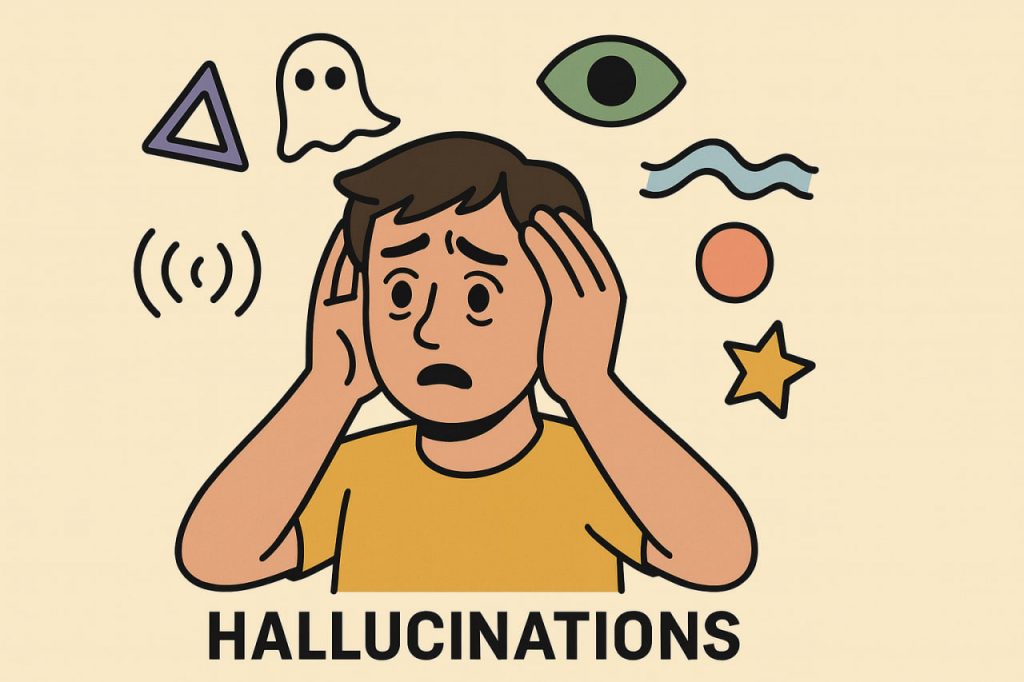Hallucinations are perceptions that occur without an external stimulus. A person experiencing hallucinations may see, hear, smell, taste, or feel something that does not exist in reality. They can affect one or multiple senses and range from mild illusions to vivid, complex experiences.
Causes of Hallucinations
Hallucinations can result from various factors:
- Mental health conditions such as schizophrenia or severe depression.
- Neurological disorders like Parkinson’s disease, Alzheimer’s disease, or epilepsy.
- Sleep deprivation or extreme stress.
- Substance use, including alcohol, drugs, or medications.
- Sensory deprivation, where the brain compensates for a lack of external input.
Types of Hallucinations
- Visual hallucinations – seeing objects, lights, or people that aren’t present.
- Auditory hallucinations – hearing voices or sounds without a source.
- Olfactory and gustatory hallucinations – smelling or tasting things that are not there.
- Tactile hallucinations – feeling sensations like insects crawling on the skin.
Each type involves different brain regions and can have distinct underlying causes.
Brain Mechanisms Behind Hallucinations
Hallucinations occur when normal sensory processing is disrupted. Overactivity in sensory areas of the brain, combined with impaired reality-checking regions (like the prefrontal cortex), may cause the brain to misinterpret internal signals as external stimuli. Neurotransmitter imbalances, particularly involving dopamine and serotonin, are strongly implicated.
Risk Factors and Triggers
Stress, trauma, lack of sleep, and drug use are major triggers. Certain medications and high fevers can also produce temporary hallucinations. Understanding personal risk factors is essential for prevention and management.
Diagnosis and Management
Hallucinations are symptoms, not diseases themselves. Diagnosis involves medical and psychological evaluation to identify underlying causes. Management depends on the cause and may include therapy, lifestyle changes, or medication under professional supervision. Self-medication is not advisable.
Conclusion
Hallucinations are complex experiences that can arise from mental, neurological, or environmental factors. Recognizing their nature and seeking professional help is essential to address underlying issues and improve quality of life.
Glossary
- Hallucination – sensory perception without external stimulus.
- Auditory hallucination – hearing sounds or voices that are not present.
- Sensory deprivation – lack of external sensory input.
- Neurotransmitter – chemical messenger in the brain.
- Prefrontal cortex – brain area involved in decision-making and reality testing.
- Dopamine – neurotransmitter linked to reward and psychotic symptoms.


